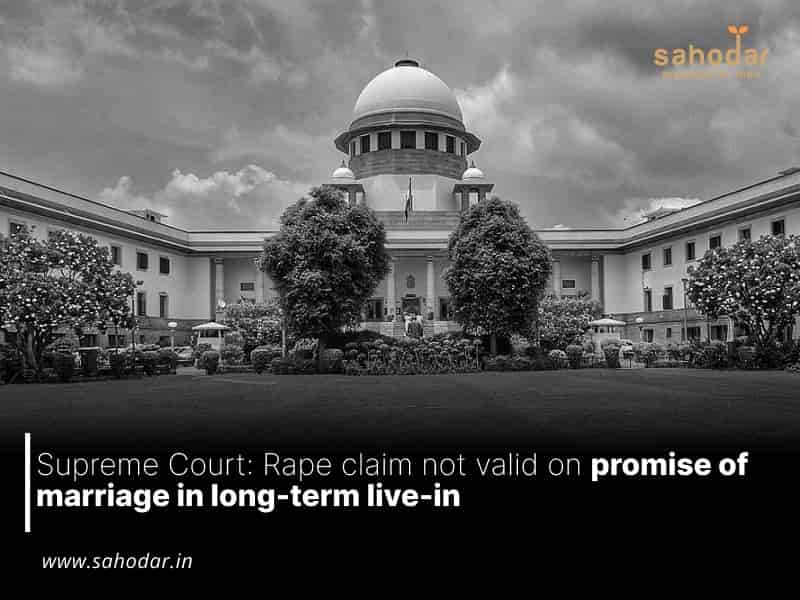More women are financially independent now, which has led to a proliferation of live-in relations and the Court cannot be pedantic in such cases, the top court said.
The Supreme Court recently ruled that when two adults live together as a couple for an extended period, it cannot be assumed that the relationship began with a promise of marriage. Therefore, the woman’s claim of rape based on a false promise of marriage is not valid [Ravish Singh Rana v The State of Uttarakhand & Anr].
A Bench of Justices Sanjay Karol and Manoj Misra stated that in such cases, it is presumed that the couple entered the relationship voluntarily and were fully aware of its implications.
“In our view, if two able-minded adults reside together as a live-in couple for more than a couple of years and cohabit with each other, a presumption would arise that they voluntarily chose that kind of a relationship fully aware of its consequences. Therefore, the allegation that such relationship was entered because there was a promise of marriage is in the circumstances unworthy of acceptance, particularly, when there is no allegation that such physical relationship would not have been established had there been no promise to marry,” the Bench said.
The Court emphasized that in a long-term live-in relationship, there may be instances where the parties express a desire to formalize it through marriage, but this desire alone does not imply that the relationship was formed with that intention.
It further noted that while live-in relationships may not have been common a decade or two ago, the increasing financial independence of women today has enabled them to make informed decisions about their lives, leading to a rise in such relationships.
“Therefore, when a matter of this nature comes to a court, it must not adopt a pedantic approach rather the Court may, based on the length of such relationship and conduct of the parties, presume implied consent of the parties to be in such a relationship regardless of their desire or a wish to convert it into a marital bond.”
The Court made these observations while quashing a first information report (FIR) of rape and assault filed against Ravish Singh Rana by a woman with whom he had been in a live-in relationship for several years.
It was stated that the couple met on Facebook and entered into a live-in relationship.
The woman claimed that Rana initiated a physical relationship with her on the promise of marriage. She further alleged that during the relationship, Rana physically abused her.
She also stated that when she insisted on marriage, Rana refused, threatened her, and coerced her into physical relations.
After reviewing the case, the Supreme Court quashed the charges and overturned the High Court’s decision to reject Rana’s plea.
“We are of the view that on ground of refusal to marry, the appellant cannot be subjected to prosecution for the offence of rape. The other allegations of assault and abuse have not been supported by any material particulars,” the Court stated.

